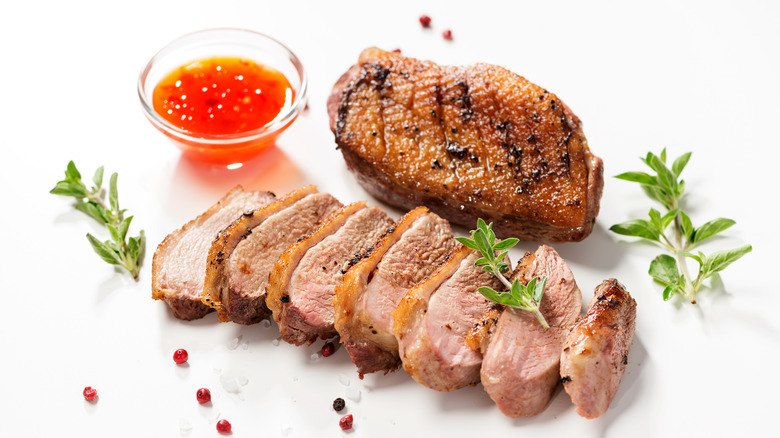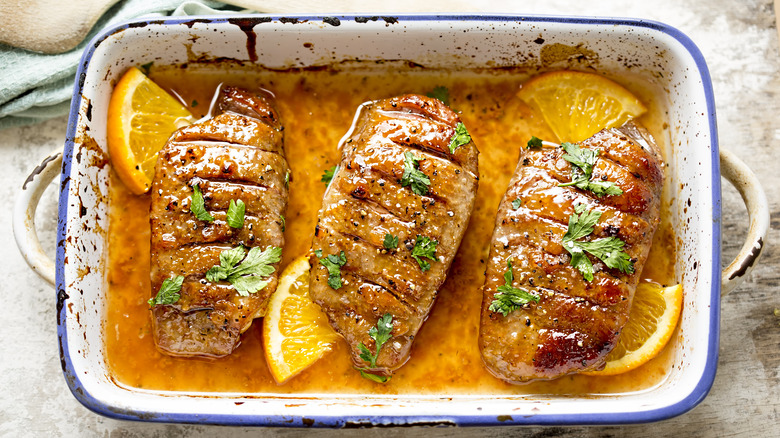The Easy Rule For Letting Cooked Duck Rest
What do words like "peking," "à l'Orange," and "confit" remind you of? Technically, these terms apply to a variety of ingredients, but for well-known recipes, the correct answer would be duck.
Duck is often showcased in upscale restaurants, in certain regions of the United States, and within traditional, home-cooked meals around the world. Portugal, for instance, is home to arroz de pato, which is rice with duck meat, sausages, and/or smoked meats. Bay leaves, garlic, and onions are typically used to flavor the dish, as well as an interesting use of oranges. Or, if you're anything like Andrew Zimmerman, you may want to try duck's head in China, which apparently, tastes like a spicy chicken wing, via Taste Atlas.
Fortunately, you don't need to traverse the globe or shell out money at fine-dining restaurants to experience the intense dark meat flavors of duck. As BBC Good Food notes, the fatty nature of duck is happy to roast in an oven, stir-fry in a pan, deep-fry in oil, or grill in the great outdoors, and that's something that any home cook can accomplish. And although it's tempting to slice right into your efforts after the duck is done cooking, it needs a small window of resting time like a pork chop or steak. Otherwise, all those tasty juices will spill out, which ends up drying out the meat, per D'Artagnan. So here's a good rule of thumb for letting duck rest post-cooking.
The oven time is the resting time
Gordon Ramsay (via MasterClass) offers a pro tip for letting duck breasts rest after cooking. He mentions that the resting time should be equivalent to the oven time at a 1:1 ratio. So that means if the duck breasts were roasting for, say, 10 minutes in the oven, that means you should let them rest for 10 minutes before serving. Granted, this rule is for duck breasts, not for whole-roasted ducks. Why? Because whole-roasted ducks could take hours to cook, and you don't want to rest a duck for that long, unless you're aiming for cold meat with softened (instead of crispy) skin.
Gressingham mentions that a 10- to 20-minute resting time for whole ducks is sufficient while a separate MasterClass source states that a six-pound duck should rest for 15 minutes. Fifteen minutes seems like a solid middle-ground number for the 10- to 20-minute range, but you can always rest the duck a little bit longer if you'd like.
And be sure to tent the meat with aluminum foil. As Thermo Blog notes foil helps to trap the warmth within the meat, otherwise, it would escape throughout the kitchen, possibly rendering the duck cold and not as tasty upon serving. Granted, foil may also affect the crispy exterior of duck skin, as mentioned by Serious Eats, but to that, you can place the duck back in the warm oven to rest, but make sure the oven is off.

